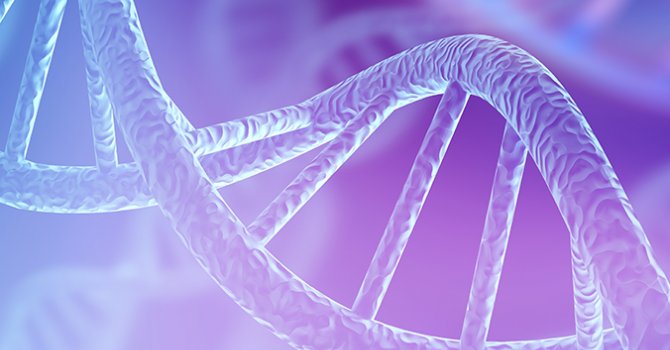 The year 2020's record-breaking wildfires in California and other Western states have compounded the grim impacts of the COVID-19 pandemic—and have similarly been politicized. Thus far, the blow they have dealt to the burgeoning cannabis industry has been well weathered. But this will clearly pose a growing challenge in the years to come—as those parts of the country where legal cannabis cultivation is most advanced are also the most vulnerable to this devastating sign of ecological disequilibrium.
The year 2020's record-breaking wildfires in California and other Western states have compounded the grim impacts of the COVID-19 pandemic—and have similarly been politicized. Thus far, the blow they have dealt to the burgeoning cannabis industry has been well weathered. But this will clearly pose a growing challenge in the years to come—as those parts of the country where legal cannabis cultivation is most advanced are also the most vulnerable to this devastating sign of ecological disequilibrium.

 In the near future, the CBD, THC or other cannabinoids you consume in edibles or medications may not be derived from cannabis at all, but grown in a laboratory.
In the near future, the CBD, THC or other cannabinoids you consume in edibles or medications may not be derived from cannabis at all, but grown in a laboratory. Protests have spread across the country in response to the death of George Floyd at the hands of Minneapolis police—a haunting crystallization of institutionalized racism in law enforcement. The protests have been punctuated by looting in many cities, and cannabis businesses have not been spared. How the industry reacts at this moment will reveal much about the soul of America's cannabis community.
Protests have spread across the country in response to the death of George Floyd at the hands of Minneapolis police—a haunting crystallization of institutionalized racism in law enforcement. The protests have been punctuated by looting in many cities, and cannabis businesses have not been spared. How the industry reacts at this moment will reveal much about the soul of America's cannabis community. If there is one person with a claim to reviving the pharmacopoeia of cannabis in the post-prohibition age—and thereby undermining prohibition's pseudo-scientific foundations—that person was Tod Mikuriya. The Berkeley psychiatrist, who died in 2007, was hailed as the grandfather of the medical marijuana movement, backing up the activists with unimpeachable scholarly chops—to the rage of the Drug War establishment.
If there is one person with a claim to reviving the pharmacopoeia of cannabis in the post-prohibition age—and thereby undermining prohibition's pseudo-scientific foundations—that person was Tod Mikuriya. The Berkeley psychiatrist, who died in 2007, was hailed as the grandfather of the medical marijuana movement, backing up the activists with unimpeachable scholarly chops—to the rage of the Drug War establishment.
 A figure from the Bay Area cannabis industry was embroiled in America's fast-escalating culture wars when she threatened to call the police on a young Black girl selling water on a San Francisco street. In the outcry, she has stepped down from her own company—and helped draw a line over what behavior is considered acceptable in the cannabis community.
A figure from the Bay Area cannabis industry was embroiled in America's fast-escalating culture wars when she threatened to call the police on a young Black girl selling water on a San Francisco street. In the outcry, she has stepped down from her own company—and helped draw a line over what behavior is considered acceptable in the cannabis community. For a generation now, science has known of two cannabinoid receptors—specialized protein molecules that interact with the active compounds in the cannabis plant for the human body. These are CB1 and CB2, both discovered in the early '90s. Now there is growing awareness of a third such receptor that was identified in 2007. This receptor, GPR55, may be key to understanding a wide spectrum of therapeutic applications for cannabinoids—and especially the non-psychoactive cannabidiol, or CBD.
For a generation now, science has known of two cannabinoid receptors—specialized protein molecules that interact with the active compounds in the cannabis plant for the human body. These are CB1 and CB2, both discovered in the early '90s. Now there is growing awareness of a third such receptor that was identified in 2007. This receptor, GPR55, may be key to understanding a wide spectrum of therapeutic applications for cannabinoids—and especially the non-psychoactive cannabidiol, or CBD. The House and Senate appropriations leadership has hammered out a budget bill that includes an historic amendment to curb federal Department of Justice (DoJ) enforcement in medical marijuana states. The measure, which was originally passed by the House in May with a 219-189 vote, aims to prohibit the DoJ from spending taxpayer money to undermine state medical marijuana laws. "This is great news for medical marijuana patients all across the country," said Rep.
The House and Senate appropriations leadership has hammered out a budget bill that includes an historic amendment to curb federal Department of Justice (DoJ) enforcement in medical marijuana states. The measure, which was originally passed by the House in May with a 219-189 vote, aims to prohibit the DoJ from spending taxpayer money to undermine state medical marijuana laws. "This is great news for medical marijuana patients all across the country," said Rep. 





Recent comments
2 weeks 6 days ago
2 weeks 6 days ago
6 weeks 5 hours ago
6 weeks 6 days ago
10 weeks 6 days ago
14 weeks 5 days ago
18 weeks 5 days ago
19 weeks 3 days ago
29 weeks 3 days ago
33 weeks 4 days ago